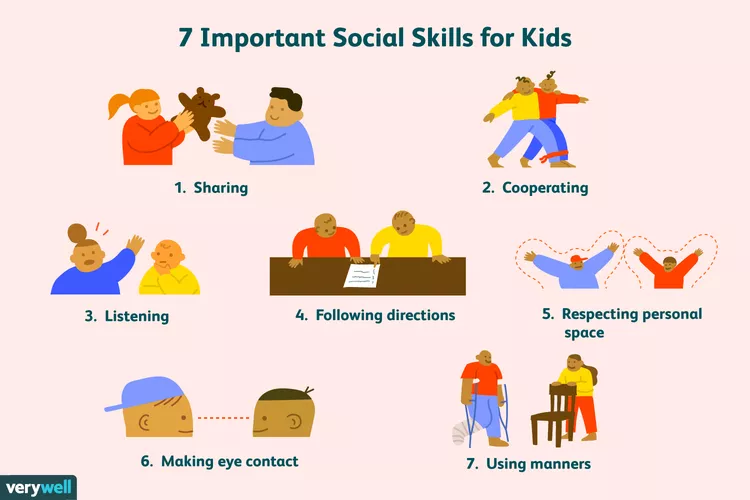Essential Soft Skills for Kids: Building a Foundation for Future Success

Source: https://www.gohenry.com/
Introduction
Soft skills matter, probably more than you might think. Research conducted by Harvard University, the Carnegie Foundation, and Stanford Research Center found that 85% of job success comes from having well‐developed soft and people skills, while only 15% stems from job skills, known as hard skills. Additionally, a report by the Skills Builder Partnership in liaison with the CIPD found that people with higher levels of essential skills earn, on average, an extra £4,600 a year. With these statistics in mind, it’s clear that teaching children soft skills early on is crucial for their future success. Here are the essential soft skills your kids need to learn and develop.
What Are Soft Skills?
Soft skills are the interpersonal skills that help us thrive in the world. Unlike hard skills, which refer to job-related and academic knowledge and abilities, soft skills are people skills. These include the ability to connect, communicate, and collaborate with others effectively. Soft skills build confidence, resilience, and adaptability, all of which are essential for success in school, work, and life.
Why Are Soft Skills Important?
Soft skills are important because they enable us to interact effectively with others, solve problems, and adapt to changing situations. For teens, these skills help build rapport, communicate effectively, and handle adversity with grace. Helen Bryant, a leadership expert and soft skills trainer, states, “Our children face a maze of challenges in the fast-paced game of life. Soft skills are the key to their success. These abilities are not only the secret weapon for making friends, but they also unlock the doors to success in school, work, and beyond.”
Top 10 Soft Skills for Kids to Learn & Develop
- Communication
- Communicating well involves expressing oneself clearly and effectively, as well as listening attentively. Encourage kids to speak up and chat with people they don’t know, modeling good communication skills yourself.
- Critical Thinking
- This includes thinking logically and analytically. Provide opportunities for problem-solving, such as puzzles or devising solutions to real-life problems.
- Empathy
- Also known as emotional intelligence, empathy involves understanding and managing one’s own emotions and those of others. Demonstrate empathy by listening and responding to your child’s feelings.
- Problem-Solving
- Identifying and solving problems logically and efficiently is a key skill. Allow children to work on possible solutions rather than fixing problems for them.
- Teamwork
- Working effectively with others towards a common goal is essential. Encourage family teamwork and motivate each other with chores and shared responsibilities.
- Organisation
- Being organized helps manage stress and time. Teach kids goal-setting and prioritization techniques to enhance their organizational skills.
- Creativity
- Creative thinking involves coming up with new ideas and solutions. Encourage children to try new things and not be afraid to fail, fostering a growth mindset.
- Adaptability
- Adjusting to change and being flexible in thinking is powerful. Expose children to new experiences, such as different foods, books, and places, to enhance adaptability.
- Resilience
- Bouncing back from setbacks and challenges is crucial for handling stress and adversity. Help children develop a growth mindset to see challenges as opportunities for growth.
- Time Management
- Learning to prioritize tasks and create schedules is a vital soft skill. Teach children to focus on important tasks first and avoid procrastination.
Tips to Help Your Children Develop These Soft Skills
- Reinforce Self-Esteem
- Encourage kids to talk about their strengths and accomplishments to build confidence.
- Model the Behavior
- Demonstrate the soft skills you want to see in your children, as they learn by watching adults.
- Provide Practice Opportunities
- Create opportunities for kids to practice soft skills through games, problem-solving activities, and interactions with peers.
- Be Patient and Supportive
- Developing soft skills takes time and practice. Be patient and offer support as your children learn and grow.
- Encourage Risk-Taking
- Help children see risks as learning opportunities. Encourage them to take risks and learn from their mistakes.
- Make Learning Fun
- Incorporate fun activities, games, and apps that teach soft skills to keep children engaged.
- Be Consistent
- Regularly discuss soft skills and provide consistent opportunities for practice.
Conclusion
Soft skills are crucial for children’s success in life, affecting everything from school performance to future job prospects. By teaching and modeling these skills, parents can help their children build a solid foundation for a successful and fulfilling life. Encouraging communication, critical thinking, empathy, and other soft skills will not only help kids navigate the complexities of life but also set them apart in an increasingly competitive world.
Source of image: https://www.verywellfamily.com/





